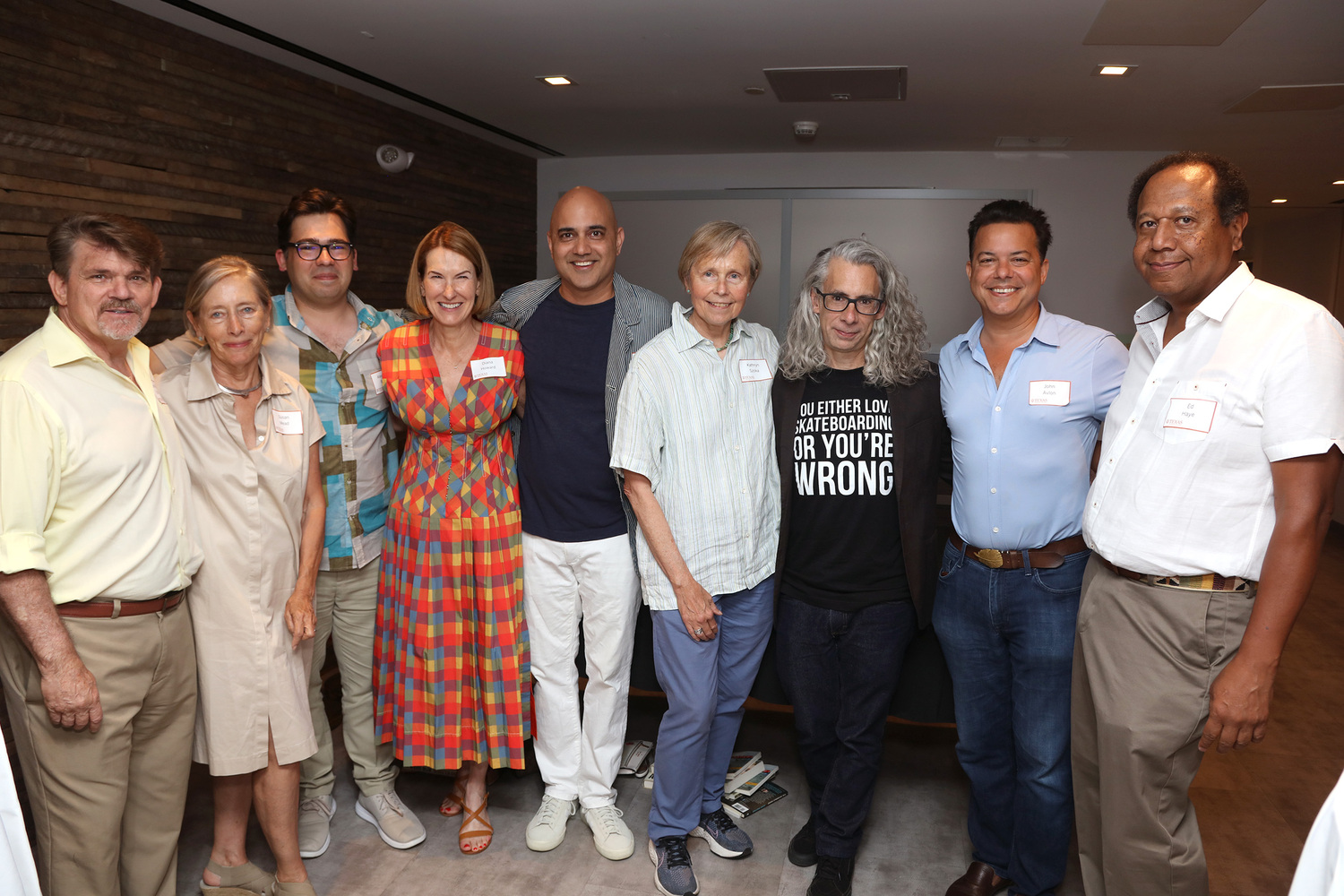
John Steinbeck’s former Sag Harbor home has been preserved, and it has been open since Memorial Day for a limited number of public tours.
On Friday, the University of Texas’s Michener Center for Writers held a reception at the Sag Harbor Cinema to announce the launch of the third leg of the effort to commemorate the Nobel Prize-winning author’s local legacy: the Steinbeck Writers’ Retreat.
Bret Anthony Johnston, the director of the Michener Center, introduced the novelist and playwright Ayad Akhtar as the first visiting writer. Although he will be in Sag Harbor for only about a week, Akhtar said he expected to use his short stay in the village as an ambassador for the new program, as well as to make some progress on his latest novel, a follow-up to his 2020 book, “Homeland Elegies,” which won the American Book Award.
“I’m delighted to be in that house,” he said, adding that as soon as he arrived he could sense “echoes” of Steinbeck’s presence. “Sometimes you go somewhere for inspiration,” he said. “You don’t necessarily go there to dwell and work.”
Johnston said that Akhtar was chosen as the first writer to be invited to the new retreat, in part, because he is a multidisciplinary writer, who has novels, plays and screenplays to his credit.
“We wanted Ayad to get some time in the house because he does such profound work in different genres,” Johnston said, adding that the Michener Center also requires writers to master more than one genre.
Johnston also announced that Carrie R. Moore, a graduate of the Michener Center, has been named the first writer in residence. She will arrive in September and plans to use her stay of several months to complete her first novel, “Clarity.”
“One of the reasons the prize jury chose Carrie was based on the promise of that novel,” Johnston said. “They also chose her because of the quality of her community engagement project and the way she had delved into the history of the Black community in Sag Harbor.
“When that book goes out into the world and becomes a huge success, mark my words, it will be because of the time she has spent in the house,” Johnston added.
Johnston thanked members of community who worked with Southampton Town officials to buy the Steinbeck property for $13.5 million, with $11.2 million coming from the town’s Community Preservation Fund, after the heirs of Steinbeck’s widow, Elaine, put the property on the market for nearly $18 million in 2021.
As he did shortly after the University of Texas was announced as the partner to run the writer’s retreat, Johnston spoke of what he described as the “North Star” of the effort, sharing the story of how Steinbeck donated the $1,000 he received when he won the Pulitzer Prize for “The Grapes of Wrath” to another writer who was trying to complete his first novel. When the writer needed more time and help, Steinbeck let him use his house.
“So that’s the legacy. That’s the model that we are here to uphold,” Johnston said. “The Steinbeck Writer’s Retreat wants to support writers the same way John and Elaine always supported writers. And because of you, we are able to do that.”
Akhtar also spoke. He recounted how he had recently been given a script that had been prepared by an artificial intelligence program.
“Hands down, it was the most compelling television script I have read in a long time — and it was completely generated by a computer,” he said. “It’s not that I think this is necessarily the end of the world, but I do think it is a reminder of what we are up against.”
With that kind of competition, Akhtar, who described himself as a “weirdo apocalyptic optimist,” said he believed there would always be a need for authentic art created by human beings.
“We are going to need people like Bret is talking about,” he said, “writers who will remind us what art is.”